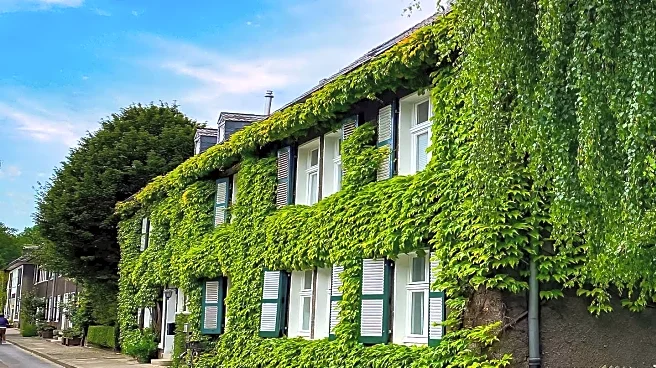What's Happening?
Ardbeg House, a new luxury hotel on the Isle of Islay, Scotland, invites visitors to experience the 'peaty paradox' of Ardbeg whisky. Owned by The Glenmorangie Company, the hotel offers an immersive experience into the world of Ardbeg, known for its smoky yet sweet flavor. The hotel features bespoke furnishings and decor inspired by the whisky's distinctiveness, with rooms themed around local history and the whisky's characteristics. The opening follows the purchase of the local Islay Hotel, aiming to enhance community investment and cater to international demand for experiential travel. Guests can enjoy tours of the historic Ardbeg distillery and exclusive whisky offerings.
Why It's Important?
The opening of Ardbeg House reflects a growing trend in consumer preferences for experiential travel and memory-creation. It highlights the importance of cultural and historical narratives in tourism, offering visitors a unique insight into Scottish heritage and the whisky industry. The hotel supports local economic development by attracting international visitors and promoting Islay's cultural assets. It also strengthens Ardbeg's brand identity, leveraging its distinctive flavor profile to create a memorable hospitality experience. This development underscores the role of luxury tourism in preserving and celebrating regional traditions.
What's Next?
As Ardbeg House welcomes guests, it is expected to boost tourism on Islay, contributing to the local economy and community engagement. The hotel's success may inspire similar initiatives in the whisky industry, promoting experiential travel as a key strategy for brand differentiation. The focus on bespoke design and local artistry may influence future hospitality trends, emphasizing authenticity and cultural immersion. Continued investment in the hotel and distillery tours will likely enhance Ardbeg's global reputation, attracting whisky enthusiasts and cultural travelers alike.
Beyond the Headlines
The opening of Ardbeg House raises questions about the balance between commercial development and cultural preservation. It highlights the ethical considerations of leveraging local heritage for tourism, emphasizing the need for responsible practices that respect community values. The hotel's focus on storytelling and memory-creation may influence broader discussions on the role of narrative in consumer experiences, encouraging brands to integrate cultural elements into their offerings. This development also prompts reflection on the sustainability of luxury tourism and its impact on local environments and economies.









